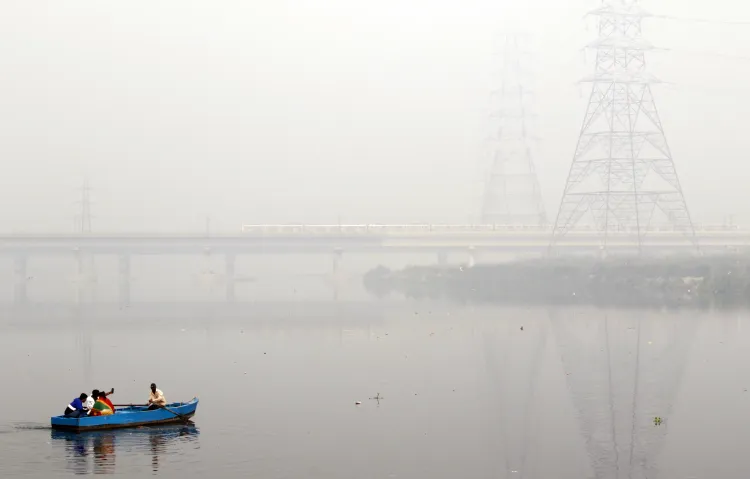Is 8,500 Tonnes of Antibiotics Contaminating Rivers Worldwide?

Synopsis
Key Takeaways
- 8,500 tonnes of antibiotics are released into rivers annually.
- Study led by McGill University researchers.
- Amoxicillin is the most commonly found antibiotic at risky levels.
- Rising usage in Southeast Asia exacerbates the issue.
- Urgent call for monitoring and management strategies.
New Delhi, May 12 (NationPress) Every year, approximately 8,500 tonnes of antibiotics, which accounts for nearly one-third of global human consumption, find their way into river systems across the globe. This alarming trend significantly fosters drug resistance and jeopardizes aquatic life, as revealed by a recent study.
The research, spearheaded by scholars from McGill University in Canada, represents the inaugural effort to gauge the extent of river contamination resulting from human antibiotic usage.
According to lead author Heloisa Ehalt Macedo, a postdoctoral fellow specializing in geography at McGill, 'Although the residues of individual antibiotics exist in very small concentrations in most rivers, making them extremely difficult to detect, the chronic and cumulative environmental exposure can still threaten both human health and aquatic ecosystems.'
The findings, published in the journal PNAS Nexus, were derived from a global model supported by field data collected from nearly 900 river locations.
The study identified amoxicillin, known as the most widely used antibiotic globally, as the one most likely to be found at dangerous levels, particularly in Southeast Asia, where increased usage and inadequate wastewater treatment exacerbate the issue.
Despite the essential role of antibiotics in healthcare, Bernhard Lehner, a Professor of global hydrology at McGill's Geography Department, noted, 'The results suggest there could be unintended consequences for aquatic environments and antibiotic resistance.'
The research emphasizes the urgent need for mitigation and management strategies to minimize these impacts, according to Lehner.
Importantly, this study did not factor in antibiotics stemming from livestock or pharmaceutical manufacturing, both of which significantly contribute to environmental pollution.
'Our findings indicate that antibiotic pollution in rivers due solely to human consumption is a pressing issue, likely intensified by veterinary or industrial sources of similar compounds,' remarked Jim Nicell, an environmental engineering professor at McGill.
The research team advocates for monitoring programs aimed at detecting antibiotics and other chemical pollutants in water bodies.









